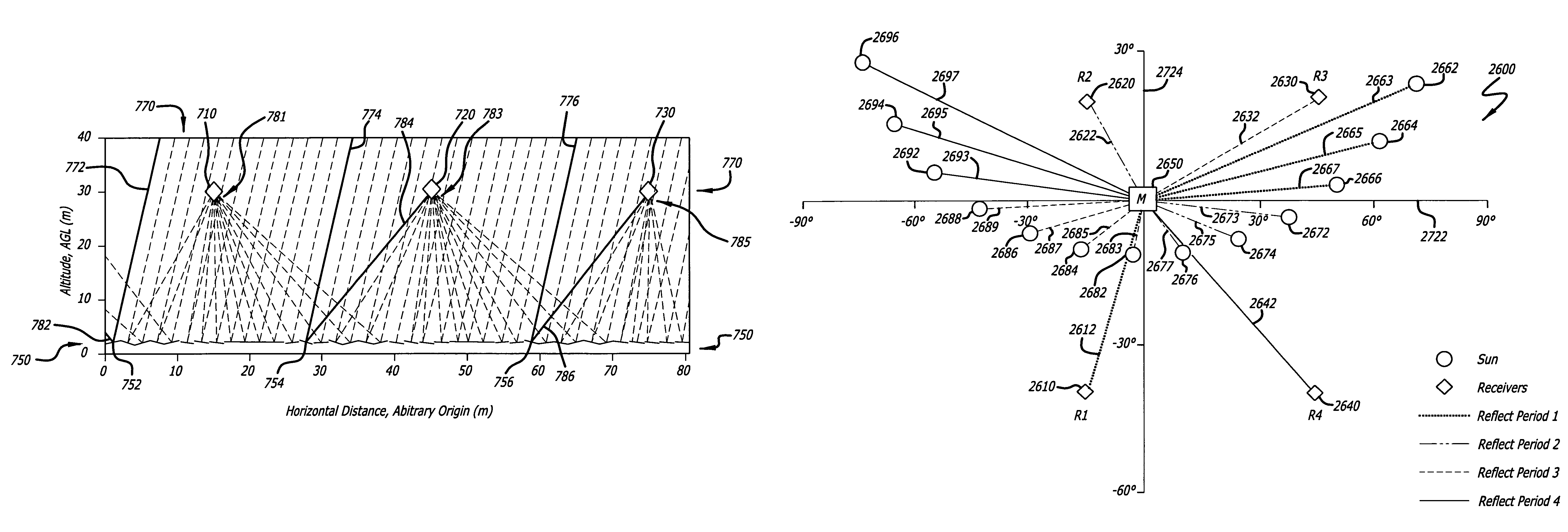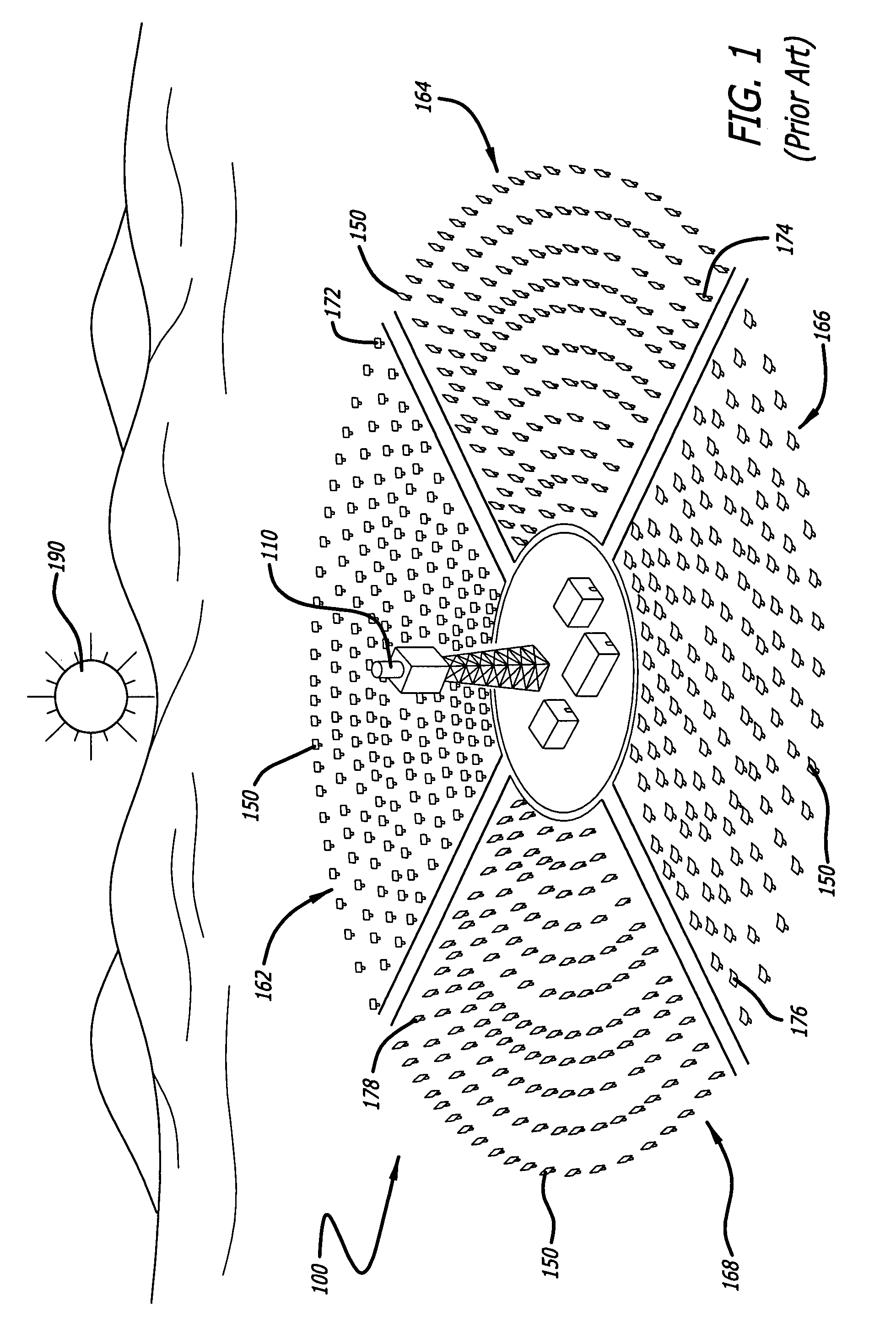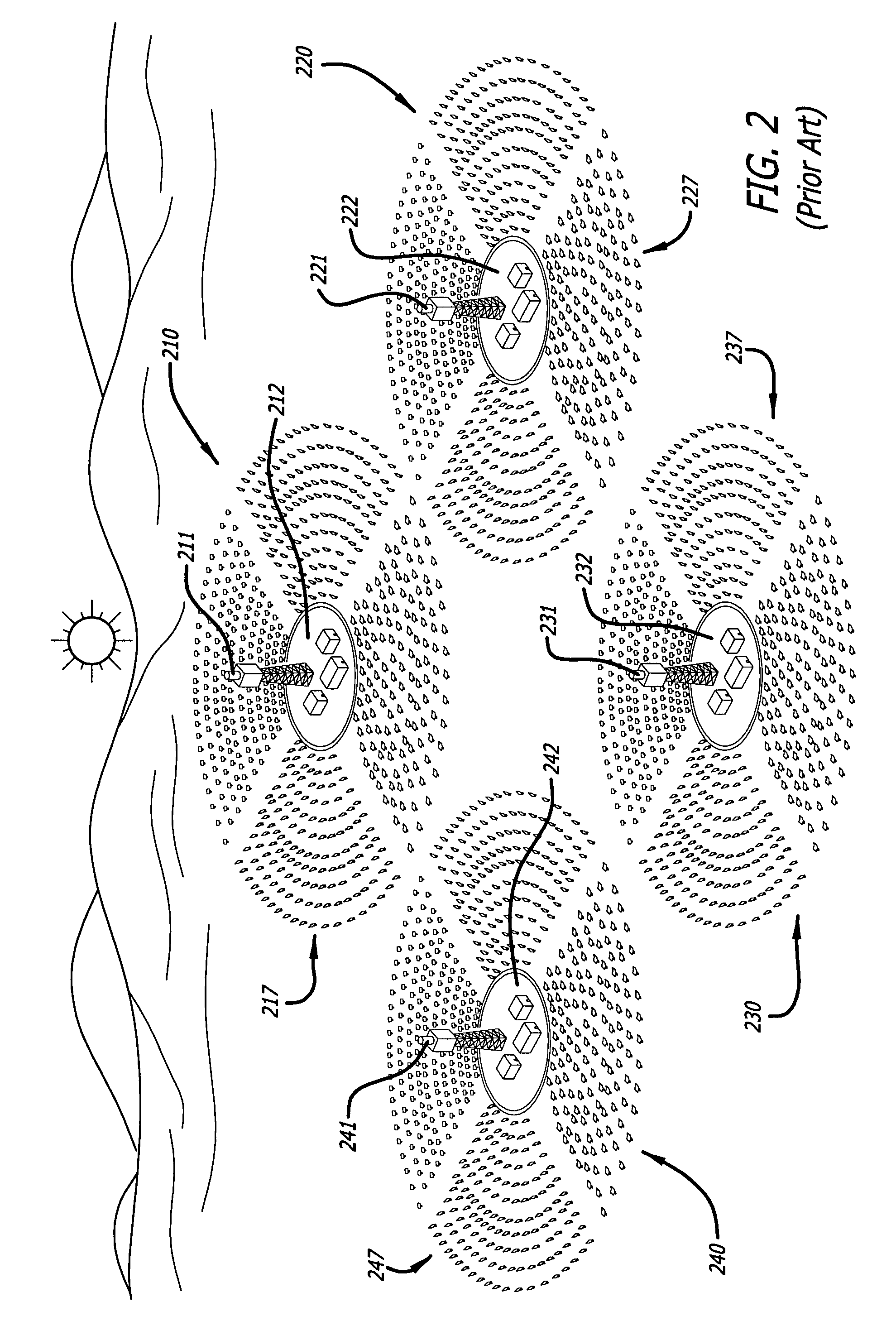Multi-receiver heliostat system architecture
a heliostat and multi-receiver technology, applied in the field of solar energy collection devices, can solve the problems of limited land use, achieve the effect of improving the utilization of individual heliostats and land, reducing costs, and increasing the efficiency of heliostats
- Summary
- Abstract
- Description
- Claims
- Application Information
AI Technical Summary
Benefits of technology
Problems solved by technology
Method used
Image
Examples
Embodiment Construction
[0070]The subject invention improves the utilization of heliostats (sun-tracking reflector assemblies), simplifies the design of heliostats, and allows better land utilization by heliostat fields used for concentrated solar power generation (CSP) systems. The systems and methods of the present invention improve upon the conventional central receiver architecture, having features that reduce cost by increasing the efficiency of heliostats, by allowing denser packing of heliostats, and by supporting substantial flexibility in sizing and siting to reduce development risk.
[0071]By way of definition, the term “receiver” is used herein to refer to a device for capturing incident radiation and converting such incident radiation into another form of energy. The term “receiving location” is used herein to refer to the common location to which solar radiation is directed by a plurality of heliostats. A receiver may be placed at the receiving location; however, the receiving location may alter...
PUM
 Login to View More
Login to View More Abstract
Description
Claims
Application Information
 Login to View More
Login to View More - R&D Engineer
- R&D Manager
- IP Professional
- Industry Leading Data Capabilities
- Powerful AI technology
- Patent DNA Extraction
Browse by: Latest US Patents, China's latest patents, Technical Efficacy Thesaurus, Application Domain, Technology Topic, Popular Technical Reports.
© 2024 PatSnap. All rights reserved.Legal|Privacy policy|Modern Slavery Act Transparency Statement|Sitemap|About US| Contact US: help@patsnap.com










